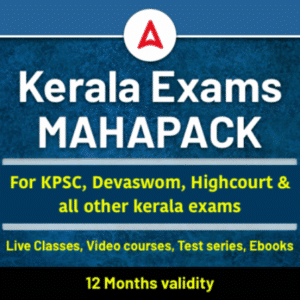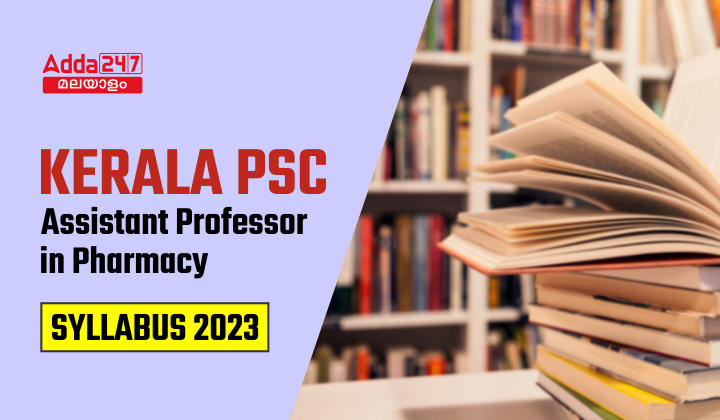Table of Contents
Kerala PSC Assistant Professor in Pharmacy Syllabus 2023: If you have applied for the post of Assistant Professor in Pharmacy and would like to know the detailed syllabus, then your search ends right here. In this article we will provide the detailed syllabus of the upcoming Kerala PSC Assistant Professor in Pharmacy Exam 2023. In order to crack the exam, one needs to have a clear understanding of the syllabus, therefore read through Kerala PSC Assistant Professor in Pharmacy Syllabus 2023 to broaden your perspective. You can also download Kerala PSC Assistant Professor in Pharmacy Syllabus 2023 in pdf format.
| Kerala PSC Assistant Professor in Pharmacy Syllabus 2023 | |
| Organization | Kerala Public Service Commission |
| Category | Exam Syllabus |
| Post Name | Assistant Professor in Pharmacy |
| Assistant Professor in Pharmacy Exam Date | 22nd May 2023 |
| Official Website | https://www.keralapsc.gov.in/ |
Kerala PSC Assistant Professor in Pharmacy Syllabus 2023
Kerala PSC Assistant Professor in Pharmacy Syllabus 2023: പരീക്ഷയ്ക്കുള്ള തയ്യാറെടുപ്പുകൾ ആരംഭിക്കാൻ സമയമായി. പരീക്ഷയിൽ വിജയിക്കുന്നതിന്, സിലബസിനെക്കുറിച്ച് വ്യക്തമായ ധാരണ ഉണ്ടായിരിക്കണം, അതിനാൽ കേരള PSC അസിസ്റ്റൻറ് പ്രൊഫസർ ഇൻ ഫാർമസി സിലബസ് 2023 വിശദമായി വായിച്ച് മനസിലാക്കുക. നിങ്ങൾക്ക് Kerala PSC Assistant Professor in Pharmacy Syllabus 2023 pdf രൂപത്തിൽ ഡൗൺലോഡ് ചെയ്യാം.
Kerala PSC Assistant Professor in Pharmacy Exam Date 2023
Kerala PSC Assistant Professor in Pharmacy Syllabus 2023: Overview
ചുവടെ നൽകിയിരിക്കുന്ന പട്ടികയിൽ Kerala PSC Assistant Professor in Pharmacy Syllabus 2023 സംബന്ധമായ എല്ലാ പ്രധാനപ്പെട്ട വിവരങ്ങളും ലഭിക്കും.
| Kerala PSC Assistant Professor in Pharmacy Exam Date 2023 | |
| Organization | Kerala Public Service Commission |
| Category | Exam Syllabus |
| Department | Medical Education |
| Name of the Post | Assistant Professor in Pharmacy |
| Category No. | 561/2017 |
| Kerala PSC Assistant Professor in Pharmacy Admit Card Release Date | 8th May 2023 |
| Kerala PSC Assistant Professor in Pharmacy Exam Date | 22nd May 2023 |
| Mode of Examination | ONLINE/OMR |
| Medium of Questions | English |
| Total Marks | 100 |
| Duration of Examination | 1 Hour 30 Minutes |
| Official Website | www.keralapsc.gov.in |
Kerala PSC Pump Operator Syllabus 2023
Fill the Form and Get all The Latest Job Alerts – Click here

Kerala PSC Assistant Professor in Pharmacy Exam Pattern 2023
| Kerala PSC Assistant Professor in Pharmacy Exam Pattern 2023 | ||
| Module | Topic | Marks |
| I | Pharmacognosy and Phytochemistry | 10 Marks |
| II | Human Anatomy &Physiology and Pharmacology-1 | 10 Marks |
| III | Pharmacy Practice | 10 Marks |
| IV | Pharmacology –ll and lll | 10 Marks |
| V | Titrimetry and Instrumental Methods | 10 Marks |
| VI | Pharmaceutical Chemistry | 10 Marks |
| VII | Medicinal Chemistry | 10 Marks |
| VIII | Pharmaceutical Jurisprudence | 10 Marks |
| IX | Pharmaceutical Microbiology and Biotechnology | 10 Marks |
| X | Pharmaceutical Engineering | 10 Marks |
Kerala PSC Junior Manager Syllabus 2023
Kerala PSC Assistant Professor in Pharmacy Syllabus 2023: Detailed Syllabus
MODULE: 01 (10 marks)
Pharmacognosy and Phytochemistry
1. Plant hormones and their applications- polyploidy, mutation, and hybridization with reference to
medicinal plants.
2. Systematic pharmacognostic study of following:
a) Carbohydrates and derived products: Agar, acacia, Ispaghula, and tragacanth.
b) Lipids: castor oil, cocoa butter, hydnocarpus oil, linseed oil.
3. Study of drugs containing resins and resin combinations: colophony, podophyllum, cannabis,
myrrh, asafoetida, benzoin, turmeric, ginger.
4. Study of tannins and tannin containing drugs: Bahera,catechu and myrobalan.
5. Volatile oils: General methods of obtaining volatile oils from plants and their classification, general
properties, chemical nature and chemical tests. Study of volatile oil containing drugs – mentha, coriander,
cinnamon, cassia, lemon grass, clove, fennel, nutmeg, eucalyptus, cardamom.
6. Study of pharmaceutical aids like kaolin, bentonite, and natural colours.
7. Study of the biological sources, commercial varieties, chemical constituents, substitutes, adulterants,
uses, diagnostic, macroscopic and microscopic features and specific chemical tests of the following
groups of drugs containing glycosides:
Saponins:- Liquorice, Dioscorea and Sarasparilla. Cardioactive sterols:
– Digitalis, Squil.
Anthrquinone cathartics: – Aloes, Senna. Others: –
Gentian, Saffron.
8. Introduction to Ayurvedic preparations like Asavas, Gutikas, Tailas, Choornas, Lehyas and Bhasmas.
9. Systematic study of source, cultivation, collection, processing constituents, adulterants, uses, diagnostic
macroscopic and microscopic features and specific chemical tests of following alkaloid containing drugs:
Tropane:- Belladonna, Hyoscyamus, Datura, and Withania.
Quinoline & Isoquinoline:- Cinchona, Ipecac, Opium.
Indole:- Ergot, Rauwolfia, Catharanthus.
Steroidal:- Kurchi.
Alkaloidal amines:- Ephedra and Colchicum.
Purines:- Coffee and Tea.
10. General techniques of biosynthetic studies and basic metabolic pathways. Brief introduction to biogenesis of secondary metabolites of pharmaceutical importance. Shikimic acid pathway, Acetate mevalonate Pathway, Isoprenoid synthesis.
11. Marine pharmacognosy, novel medicinal agents from marine sources.
12. Protein containing drugs: Gelatin, Collagen, spirulina.
13. Chemistry, biogenesis (general pathway) and pharmacological activity of medicinally
important monoterpenes, sesquiterpenes, diterpenes and Triterpenoids.
14. Glycosides: Chemistry and biosynthesis of Digoxin and Sennosides
Alkaloids: Chemistry, biogenesis and pharmacological activity of atropine and related compounds Quinine, Morphine, Papaverine, Ephedrine, Ergot and Vinca alkaloids.
15. Plant tissue culture, Totipotency, types of cultures, nutritional requirements, growth and their maintenance. Applications of plant tissue culture in pharmacognosy.
16. Gene transfer, Gene mapping of plants, transgenic plants, introduction to DNA finger
printing.
17. Adulteration and evaluation of crude drugs. Standards for herbal formulations,WHO
guidelines in evaluation of drugs.
18. Herbaceous health foods.
19. Herbal cosmetics – including classifications with examples, standards and biological sources,chemical constituents and uses of drugs used in herbal cosmetics.
MODULE: 02 (10 marks)
Human Anatomy&Physiology and Pharmacology-1
1)General anatomy and physiology :
Cell, homeostasis, ion channels, secondary messengers, tissues, body fluids and blood.
2) Anatomy, physiology and disorders of human body systems:
Human skeleton, cardiovascular system, digestive system, Respiratory system, Urinary system,
reproductive system, endocrinology, Nervous system (ANS & CNS), muscular system, Sense organs
3) General pharmacology:
Routes of drug administration, targeted delivery, pharmacokinetics, pharmacodynamics, drug receptor theories, receptor subtypes, dose response relationship, drug dose and dosage, rational use of medications, principles of toxicology, adverse drug reactions, pharmacovigilance, Pharmacoeconomics, pharmacoepidemiology, orphan drugs.
MODULE: 03 (10 marks)
Pharmacy Practice
1) Pharmacy and therapeutic committee: Objectives, composition and functions, budget
preparation and implementation.
2) Hospital Formulary: Contents, preparation and revision of hospital pharmacy.
3) Drug store management and Inventory control:
a). Organization of Drug store, types of materials stocked, storage conditions.
b). Purchase and inventory control: Principles, purchases, procedures, purchase order,
procurement and stocking.
4) Drug distribution system in hospitals:
a) Outpatient dispensing – methods adopted. b) Dispensing of drugs to inpatients, types of drug distribution systems, charging policy, labelling. c) Dispensing of drugs to ambulatory patients.
d) Dispensing of controlled drugs.
5) Central sterile supply unit and their management: functioning and types of materials for
sterilization equipment’s, supply of sterile materials.
6) Interpretation of clinical laboratory tests and its significance: liver function tests, pulmonary
function tests, renal function tests and haematological tests.
7) Drug & Poison information services Introduction, sources of information, design of literature searches, critical evaluation of drug information and literature. Clinical pharmacokinetics &
individualization of drug therapy.
8) Drug use in special population:- infants ,elderly , pregnancy & lactation-therapeutic consideration .Dosage adjustments in renal failure, hepatic failure. Therapeutic Drug Monitoring. TDM indications for measuring drugs in blood, choice of drugs to be monitored. Timings f measurements, measuring techniques. Clinical applications – Estimation of serum concentration of Digoxin, Gentamycin, Phenytoin.
9) Clinical management (including clinical manifestations, clinical investigations/ assessment, treatment algorithms, management of adverse effects of therapy, and patient education) of the following organ disorders:: Hypertension, Heart Failure; Epilepsy, Asthma Peptic ulcer, Diabetes mellitus, Thyroid disorders, Tuberculosis& HIV ,Anaemias, Rheumatoid Arthritis.
10) Communicable diseases: Causative agents, modes of transmission, Symptoms and prevention – Chicken pox, Measles, Influenza, Diphtheria, Whooping cough, Tuberculosis, Poliomyelitis, Hepatitis,Cholera, Typhoid, Food poisoning, Helminthiasis, Malaria, Filariasis, Rabies, Trachoma, Tetanus, Leprosy, Syphilis, Gonorrhoea and AIDS.
11) First aid: Emergency treatment of Shock, Snake bite, Burns, Heart diseases (AMI & LHF), Fractures and Resuscitation methods, General methods of treatment of Poisoning.
12) Communication skills: model of communication, verbal and non-verbal communication,
questioning skills, explaining skills, listening skills & counselling skills.
MODULE: 04 (10 marks)
Pharmacology –ll and lll
1) Pharmacology of following class of drugs:
Drugs acting on Autonomic nervous system(ANS), Cardiovascular drugs, Drugs acting on respiratory tract, Drugs acting on endocrine system, Drugs acting on central nervous system, Drugs acting on gastro-intestinal tract, Drugs acting on skin, eye,uterus, kidney, blood and blood forming organs, local anaesthetics, vitamins, Heavy metals, enzymes in therapy, therapeutic gases, free radicals and
antioxidants and autocoids.
2) Bioassays:( Insulin, digitalis, adrenaline, histamine, oxytocin, d-tubocurarine, heparinesodium )and Radioimmunoassay.
3) Pharmacological screening methods : Diuretic activity, Anti ulcer activity, Analgesic activity,
Anticonvulsant activity and Anti-inflammatory activity
4) Drug discovery and new drug development
5) Antimicrobial drugs and Chemotherapy
6) Immunopharmacology: Immunosuppressant and immunostimulant drugs.
7) Gene therapy: Applications, proteins and peptides as therapeutic agents, stem cell therapy.
MODULE: 05 (10 marks)
Titrimetry and Instrumental Methods
1) Titrimetric methods:-
Neutralisation titrations, Redox titrations ,Complexometric titrations, Precipitation titrations, Nonaqueous titrations ,Gravimetry, Gasometry, Karl Fischer method.
2) Instrumental Methods :Theoretical aspects, instrumentation and application of the following
analytical methods ;Different Chromatographic methods, Potentiometry, Polarography,Amperometry, Conductometry Thermal methods,Immunoassays, Principle of absorption Spectroscopy, UV- Visible spectroscopy.IR
Spectroscopy, Spectroflurimetry, Nephelometry-turbidimetry, Nuclear Magnetic Resonance
spectroscopy, Mass spectroscopy, Flame Emission Spectphotometry, Atomic Absorption spectroscopy, X-ray crystallography.
3) Hyphenated techniques: GC-MS, LC-MS, Tandem-mass spectroscopy.
4) Quality control and Quality assurance.
MODULE: 06 (10 marks)
Pharmaceutical Chemistry
1) Organic chemistry
a) General Study (Including preparation, reactions and mechanisms) of aliphatic, alicyclic, aromatic hydrocarbons, Hetrocyclic compounds (five and six membered carbon rings) Polynuclear hydrocarbons, fused ring systems.
b) Stereochemistry
Various types of Isomerism, substitution and elimination reactions, Electrophilic and nucleophilic reactions, Addition reactions
c) Chemistry of natural products
General study ( including classification and uses) of alkaloids, glycosides ,terpenoids, purines, steroids, vitamins, sex hormones fats and oils, carbohydrates, proteins.
2) Biochemistry
a) General study and metabolism of carbohydrates,proteins,lipids,vitamins,enzymes and co
enzymes,nucleic acids ,
b) Structure of DNA, Significance of Genetic Material, DNA Replication types and details ,RNA Structure ,types and significance in protein synthesis, Transcription Translation and regulation of Gene expression, A brief account of Genetic engineering and polymerase chain reaction, A brief account of Chromosomes.
3) Inorganic chemistry
a) Limit tests.
b) Compounds belonging to the following classes of medicinal agents
Acidifiers,Antacids,Saline cathartics,Antimicrobials,Antidotes,Astringents,Expectorants and
emetics,Dental products,Radiopharmaceuticals,Acids,bases and buffers,Electrolytes,Topical agents, pharmaceutical aids, protectives and adsorbants,official preparations of Iron ,Iodine, and Calcium.
c) A brief study of Colligative properties.
MODULE: 07 (10 marks)
Medicinal Chemistry
1. General study including Synthesis, Classification, Mechanism of action, Structure Activity
Relationship and Uses of following classes of drugs;
a) Antibiotics, Sulpha drugs Antileprotics, Anthelmintics, Antimalarials, Schistomicides,
Antifungals, Tuberculostatics, Antineoplastics, Immunosuppressive agents ,Anti HIV agents.
b) Drugs acting on Central Nervous System and Autonomic Nervous system.
c) Cardiovascular drugs.
d) Diuretics.
e) Hypoglycemic agents.
f) Drugs acting on Gastro Intestinal tract.
g) Analgesics, Antipyretics and Non steroidal anti inflammatory Drugs .
h) General and Local anaesthetics.
i) Coagulants and anticoagulants.
2) Quantitative Structure Activity Relationship.
3) A brief study of Molecular Docking, Types of Docking, Phamacophore mapping,
Informatics and Drug Design.
MODULE: 08 (10 marks)
Pharmaceutical Jurisprudence
1) Pharmaceutical legislation in India: Historical developments, Legal and ethical responsibilities of pharmacists.
2) A detailed study of the following Acts and their significance to the profession of Pharmacy:
Pharmacy Act, Drugs and Cosmetics Act, Medicinal and Toilet preparations (Excise Duties) Act and Rules, Narcotic Drugs and Psychotropic Substances Act ,Drugs and Magic Remedies
(Objectionable Advertisements) Act and rules.
3) A brief study of the following Acts and their significance in Pharmacy: Drugs Prices Control Order, A.I.C.T.E. Act (Patents Act.), Prevention of Cruelty to Animals Act, Medical Termination of Pregnancy Act, The Poisons Act.
Pharmaceutical Management
1) Good Manufacturing Practice: Definition, cGMP in manufacturing, facilities, quality audit, design, development and process validation methods for Pharmaceutical operations involved in the production of tablets.
2) Stability testing protocols for various pharmaceutical products, Intellectual property rights.
Physical pharmaceutics
1) Surface and interfacial phenomena: Liquid interfaces- surface and interfacial tensions, measurement, electrical properties of interface, surface free energy, spreading coefficient.
2) Dispersions systems: Colloids: types, optical, kinetic and electrical properties, preparation,
purification, stability, Surface active agents( HLB classification),solubilization, adsorption at liquid solid and gas interfaces, Suspensions (Theory of sedimentation, wetting of particles, Flocculation, Deflocculation and controlled flocculation, Sedimentation parameters), Emulsions (Theories of emulsification, phase volume ratio, Stability problems and stabilization. Classification of emulsifying agents, evaluation of emulsions)
3) Viscosity and Rheology: Newtonian systems (properties) and Non Newtonian systems (Plastic, Pseudo plastic, Dilatant and Thixotropy.) Measurement of viscosity: Viscometers- capillary, Falling sphere, Cup and Bob, Cone and Plate viscometer.
4) Accelerated stability studies (Stability problems, stabilization technique of pharmaceutical dosage forms and Expiration dating.
5) Micromeritics: Methods of determination of Particle size and size distribution (Optical microscopy, Sieving, sedimentation Particle volume-Coulter coulter), Particle surface area(Air permeability and Adsorption), Derived properties of powders (Porosity, Packing arrangement, Bulkiness, Flow properties, Densities, Carr’s index, Hausner ratio.), Complexation methods for enhancement of solubility.
MODULE: 09 (10marks)
Pharmaceutical Microbiology and Biotechnology
1) Immunity and Immunological Products. Primary and Secondary defensive mechanisms of body, microbial resistance. Interferons. Humoral Immunity, Antigen, Antibodies, Immunological Tolerance. Hypersensitivity, Active and Passive immunization, Vaccines and Sera, their preparation, standardization and storage.
2) Control of microbes by Physical and Chemical methods: Disinfection and disinfectants, Study of sterilization techniques and validation.
3) Microbial assay of antibiotics.
4) Fermentation technology: Penicillin, alcohol, amylase and Vitamin B12.
5) Development of Hybridoma technology for Monoclonal Antibodies.
6) Enzyme immobilization: Techniques of immobilization of enzymes.
7) Aseptic techniques, source of contamination and methods of prevention, design and maintenance of aseptic area-classification, air handling units, laminar airflow units.
8) Surgical ligatures and sutures, types, Catgut-preparation and standardization. Cotton- absorbent and nonabsorbent, Blood products and plasma substitutes. Biopharmaceutics and Pharmacokinetics
1) Physicochemical and pharmaceutical factors influencing drug absorption, Biopharmaceutical
classification system. Absorption –passage of drugs across biological barriers.
2) Distribution – Factors affecting distribution, physiological barriers for distribution, volume of
distribution. Plasma protein binding.
3)Pharmacokinetics of drug absorption-zero order and first order absorption rate constants. Compartment models- Definition, One compartment model- IV Bolus, IV Infusion, Extra-Vascular administration. Determination of pharmacokinetic parameters from plasma and urine data. Two compartment model- IV Bolus- determination of pharmacokinetic parameters,Non-linear pharmacokinetics- One compartment model IV Bolus administration, Michaelis-Menten equation.
4) Design of single dose Bioequivalent study, dissolution and disintegration testing, In vitro-in vivo correlation.
MODULE: 10 (10 marks)
Pharmaceutical Engineering
1) Size reduction and size separation: ball mill, hammer mill, fluid energy mills.
2) Mechanical separation: Filtration and centrifugation- filter aids, filter press, rotary filter, edge filter.
3) Evaporation: short tube, film evaporators.
4) Distillation: Fractional distillation, steam and flash distillation, preparation of water for
injection.
5) Drying: fluidized bed, spray, and drum dryers. Principles of freeze drying.
6) Mixing: Mixers for powders, pastes and liquids.
7) Principles and methods of extraction, preparation of tinctures and liquid extracts.
Dispensing Pharmaceutics and Formulation Technology
1) Introduction to Pharmacopoeias (I.P, B.P, USP, B.P.C, NFI) with special reference to history & development of I.P.
2) Calculation of pediatric doses, percentage solutions, alligations, alcohol dilution, Isotonic
solutions.
3)Study of Dosage form preparations: Tablets (Types of tablets, excipients, processing of tablet and processing problems, tablet coating techniques and evaluation of tablets),Capsules (Materials and method of production of capsules(hard and soft) and evaluation), Micro encapsulation techniques, Monophasic and Biphasic systems, Semisolid dosage forms and Suppositories.
4) Sterile products (parenterals &ophthalmic): Classification, Formulation and Additives used,
production facilities and evaluation.
5) Packaging of Pharmaceutical preparations.
6) Pharmaceutical aerosols-components, propellants, containers, valves and actuators, types of
aerosol systems.
7) Preparation and evaluation of creams (vanishing cream and cold cream), face powder,
Shampoo, depilatories and dentifrices.
8) Formulation and evaluation of Liposomes, Niosomes, Nanoparticles,Osmotically controlled
dosage forms,and Transdermal drug delivery systems.
Kerala PSC Assistant Professor in Pharmacy Exam Syllabus 2023
അസിസ്റ്റൻറ് പ്രൊഫസർ ഇൻ ഫാർമസി പരീക്ഷാ തീയതിക്കൊപ്പം, അസിസ്റ്റൻറ് പ്രൊഫസർ ഇൻ ഫാർമസി പരീക്ഷക്കായുള്ള ലേറ്റസ്റ്റ് സിലബസും കേരള PSC യുടെ ഔദ്യോഗിക സൈറ്റിൽ (keralapsc.gov.in) പ്രസിദ്ധീകരിച്ചു. കേരള PSC അസിസ്റ്റൻറ് പ്രൊഫസർ ഇൻ ഫാർമസി പരീക്ഷാ സിലബസ് pdf ചുവടെ കൊടുത്തിട്ടുള്ള ഡയറക്റ്റ് ലിങ്ക് വഴി ഡൗൺലോഡ് ചെയ്യാം.
Kerala PSC Assistant Professor in Pharmacy Syllabus 2023 Download here
Also Read,
Weekly/ Monthly Current Affairs PDF (Magazines)
ഇതര പരീക്ഷകളുടെ ഏറ്റവും പുതിയ വിജ്ഞാപനങ്ങൾ, ദൈനംദിന ക്വിസുകൾ എന്നിവയ്ക്കായി ADDA247 മലയാളം ആപ്പ് ഡൗൺലോഡ് ചെയ്യുക.
Download the app now, Click here
ഇത് നിങ്ങൾക്കുള്ള സമയമാണ്. പരീക്ഷയ്ക്ക് സ്വയം തയ്യാറാകാനുള്ള ഏറ്റവും അനുയോജ്യമായ സമയമാണിത്. നിങ്ങൾ വീട്ടിൽ നിന്ന് ഞങ്ങളോടൊപ്പം പരീക്ഷയ്ക്ക് തയ്യാറാകുക. മികച്ച കോഴ്സുകൾ, മികച്ച ഹെഡ് ട്രെയിനർമാർ, ലളിതമായ നിർദ്ദേശങ്ങൾ, ഗുണനിലവാരമുള്ള ക്വിസ് ചോദ്യങ്ങൾ ഞങ്ങൾ നിങ്ങൾക്ക് നൽകുന്നു. ഈ അത്ഭുതകരമായ സമയം പഠിക്കാൻ നിങ്ങൾക്ക് ബുദ്ധിമുട്ടുള്ള കോഴ്സിന്റെ ഭാഗങ്ങൾ ശക്തിപ്പെടുത്തുക. Mock Tests, Test series , E-Books , Daily Current Affairs, Weekly Current Affairs, Monthly Current Affairs എന്നിവയുടെ സൗജന്യ PDF കൾ അങ്ങനെ നിരവധി പഠന സാമഗ്രികൾ ഇംഗ്ലീഷിലും മലയാളത്തിലും (English & Malayalam) ADDA 247 നിങ്ങൾക്ക് നൽകുന്നു. സൗജന്യവും, പണമടച്ചുള്ളതുമായ ക്ലാസുകൾ ഞങ്ങൾ നിങ്ങൾക്ക് ലാഭകരമായ രീതിയിൽ വാഗ്ദാനം ചെയ്യുന്നു.
***വരാനിരിക്കുന്ന പരീക്ഷകളിൽ വിജയിക്കാൻ ഞങ്ങളോടൊപ്പം ചേരുക***
Use Coupon code- KPSC (എക്കാലത്തെയും വിലക്കുറവ്)
*മലയാളത്തിലെ തത്സമയ ക്ലാസുകൾ ഇപ്പോൾ നിങ്ങളുടെ വീട്ടിൽ ലഭ്യമാണ്*

*ലക്ഷ്യത്തിലേക്കുള്ള ആദ്യ ചുവടുവെപ്പ് | ADDA247 മലയാളത്തിൽ പരിശീലനം ആരംഭിക്കൂ*
Telegram group:- KPSC Sure Shot Selection
KPSC Exam Online Test Series, Kerala Police and Other State Government Exams




